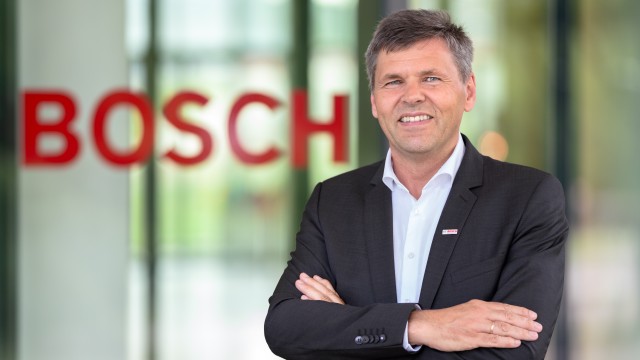Foreword
Artificial intelligence (AI) is a key technology for Germany and Europe. It is set to develop into one of the main drivers of our economy and of our prosperity. Unlike at the established major IT providers from the United States or China, for example, the opportunities in Germany and Europe lie not in imitating human behavior with the help of AI, but instead in using AI to optimize interaction between machines and the world of objects. AI allows machines to understand their spatial and functional environments differently than before – and correspondingly lets them respond better. The possibilities include using AI to manufacture physical products and to optimize the way they work.
The European approach to AI is closely related to the internet of things. Companies such as Bosch are looking to use industrial AI to make everyday life safer and more convenient for all of us, improve technologies, and relieve the burden on people, not change them. Bosch AI makes driving even safer, industrial production even more reliable, the energy management of buildings even more efficient, and homes even cozier.
The Bosch AI Future Compass delivers proof for the very first time that support of AI, especially industrial AI, is high in Germany. However, we also see that there are still many reservations about AI, some of them strong. This skepticism cannot be merely discounted as unreasonable by drawing parallels to the dystopian visions presented in movies. Like all technologies, AI has the potential to be misused. It is for that very reason that we need to understand at all times exactly how AI works and to place limits on its use. To do so, it is also necessary to discuss its benefits and drawbacks – publicly and on a sound factual basis.
Above all, we, the providers and users of AI, need to build trust by voicing our commitment to clear ethical red lines. In its AI code of ethics, Bosch committed in early 2020 to making sure that Bosch AI is safe, robust, and explainable – and that humans must retain control over all AI-based decisions. We see the fact that 85 percent of Germans agree as clear confirmation of our strategy.
The Bosch AI Future Compass is designed to inspire people to intensively consider and discuss the impact of AI on our society. Now is the time to set the course for our technological future in Germany and Europe. To do so, we need to agree on the direction. I look forward to a lively discussion.





